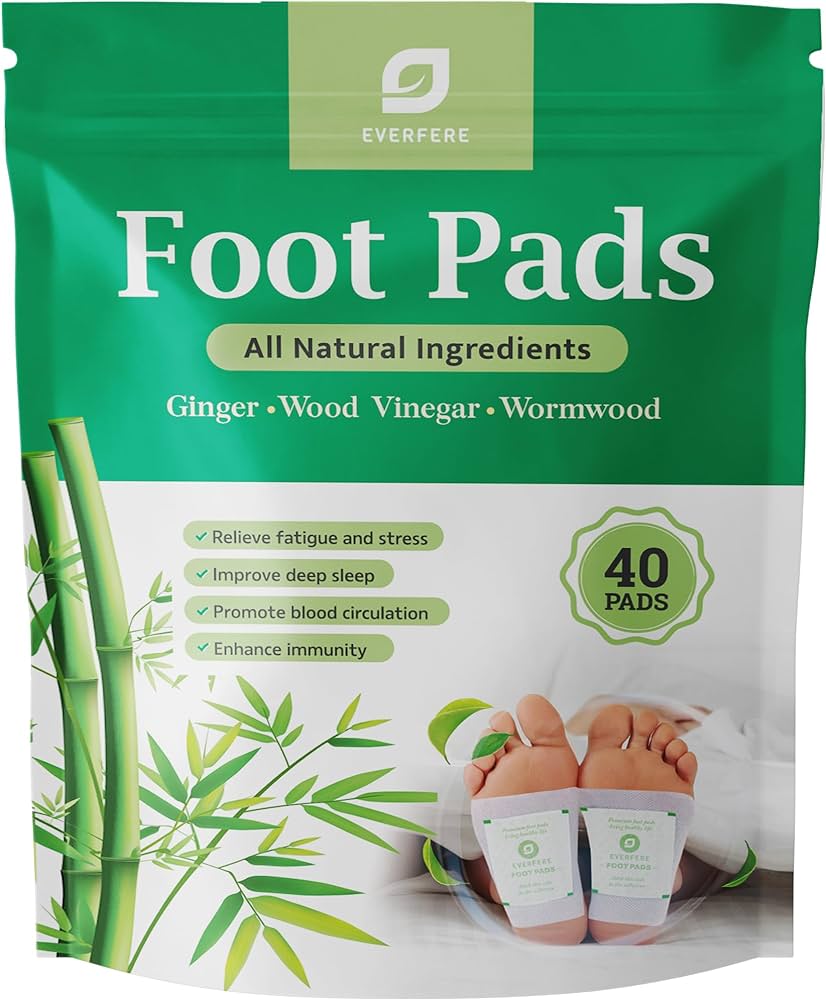Vinegar can help reduce swelling. It has anti-inflammatory properties that may aid in reducing swelling in the body.
Swelling, also known as edema, can be caused by various factors such as injury, inflammation, or underlying health conditions. Many people seek natural remedies to alleviate swelling, and vinegar is often recommended for its potential benefits. Whether using apple cider vinegar or white vinegar, the acetic acid in vinegar is believed to help reduce inflammation and swelling when applied topically or consumed.
Additionally, vinegar can act as a diuretic, promoting the removal of excess fluid in the body that contributes to swelling. While vinegar may provide some relief for minor swelling, it is essential to consult a healthcare professional for persistent or severe swelling issues.

Credit: www.amazon.com
What Causes Swelling
Swelling can occur for various reasons, often as the body’s natural response to injury or inflammation. Understanding the causes of swelling can help in managing the condition effectively. Let’s delve into the key factors that contribute to swelling, including inflammation and fluid buildup.
Inflammation And Fluid Buildup
Inflammation plays a significant role in causing swelling. When a part of the body is injured or infected, the immune system triggers an inflammatory response. This response involves the release of certain chemicals, leading to increased blood flow and the accumulation of fluid in the affected area. The excess fluid buildup results in the characteristic swelling observed in injured or inflamed tissues.
Common Causes Of Swelling
Here are some common underlying factors that can lead to swelling:
- Injury: Trauma to the body, such as sprains, strains, or fractures, can cause localized swelling.
- Edema: This condition occurs when excess fluid accumulates in the tissues, often due to issues with the circulatory or lymphatic system.
- Allergic Reactions: Allergies, particularly skin allergies like hives, can cause swelling as part of the body’s immune response.
- Arthritis: Inflammatory arthritis conditions, such as rheumatoid arthritis, can lead to persistent joint swelling.
- Infections: Swelling is a common symptom of various infections, including cellulitis and abscesses.

Credit: www.rebalancebowen.com
Benefits Of Vinegar For Swelling
Vinegar is a natural remedy that offers numerous benefits for reducing swelling and inflammation in the body. The anti-inflammatory properties of vinegar make it an effective solution for various types of swelling.
Anti-inflammatory Properties
Vinegar contains acetic acid, which acts as an anti-inflammatory agent to reduce swelling in the body.
Reduces Swelling And Inflammation
Vinegar helps to reduce swelling by inhibiting the inflammatory response in the body, making it a beneficial treatment for various conditions causing swelling.
Different Types Of Vinegar
Discover the various types of vinegar that can help reduce swelling in the body. From apple cider vinegar to balsamic vinegar, these natural remedies can provide relief and promote healing.
Vinegar, a versatile ingredient, comes in various types, each offering unique flavors and benefits. Let’s explore the most popular variations of vinegar:Apple Cider Vinegar
Apple cider vinegar, made from fermented apple juice, is rich in acetic acid, promoting anti-inflammatory properties.White Vinegar
White vinegar, distilled from grain alcohol, is a popular choice for cleaning and cooking due to its mild flavor.Rice Vinegar
Rice vinegar, commonly used in Asian cuisine, has a mild and slightly sweet taste, ideal for salad dressings and marinades.Balsamic Vinegar
Balsamic vinegar, aged and flavorful, adds a sweet and tangy touch to dishes, making it a favorite in Mediterranean cuisine. Incorporating these diverse types of vinegar into your diet can offer both culinary delights and potential health benefits.
Credit: www.livestrong.com
How To Use Vinegar For Swelling
Vinegar is a versatile household staple that has been used for centuries to alleviate swelling and inflammation. The acetic acid in vinegar is known for its anti-inflammatory properties, making it a natural remedy for reducing swelling in various parts of the body. Here’s how you can use vinegar effectively to reduce swelling:
Topical Application
Topical application of vinegar is a simple and effective way to reduce swelling in specific areas. Mix equal parts of water and apple cider vinegar, then soak a clean cloth or gauze in the solution. Apply the soaked cloth directly to the swollen area for 15-20 minutes. The anti-inflammatory properties of vinegar can help alleviate the swelling and provide relief.
Soaking In Vinegar
Soaking in vinegar can be particularly beneficial for swelling in the feet and hands. Add two cups of vinegar to a basin of warm water and soak the affected area for 15-20 minutes. The vinegar will help reduce inflammation and provide a soothing effect, offering relief from the discomfort associated with swelling.
Vinegar Compress
Creating a vinegar compress is an effective way to target swelling in larger areas of the body. Soak a towel or cloth in a solution of one part vinegar to two parts water. Apply the compress to the swollen area and leave it on for 20-30 minutes. The anti-inflammatory properties of vinegar can help reduce swelling and promote healing.
Internal Consumption
Internal consumption of vinegar can also aid in reducing swelling from within. Adding a tablespoon of apple cider vinegar to a glass of water and consuming it daily can help regulate the body’s pH levels and reduce overall inflammation, which may also contribute to swelling reduction.
Precautions And Tips
While vinegar can be an effective natural remedy for reducing swelling, it’s important to take certain precautions and follow these tips for safe and optimal use:
1. Patch Test Before Use
Before applying vinegar topically for swelling, it’s crucial to perform a patch test to check for any adverse reactions. Dilute a small amount of vinegar with water and apply it to a small area of your skin. Wait for at least 24 hours to see if you experience any irritation or allergic reactions. If there are no negative effects, you can proceed with using vinegar for swelling.
2. Dilute Vinegar With Water
Vinegar is highly concentrated and can be too harsh on the skin if used undiluted. To prevent any potential skin irritation, always dilute vinegar with equal parts of water before using it topically. This helps to reduce the acidity and makes it safer to apply on the affected area. Remember, a little goes a long way, so there’s no need to use excessive amounts of vinegar.
3. Consult A Doctor
If you have any underlying medical conditions or are uncertain about using vinegar for swelling, it’s advisable to consult a healthcare professional or your doctor. They can provide you with personalized advice based on your specific health situation and guide you on the best course of action.
4. Avoid In Certain Situations
While vinegar can be beneficial for most cases of swelling, there are certain situations where it should be avoided or used with caution:
- If you have open wounds or broken skin, do not apply vinegar directly as it may cause further irritation or stinging.
- If you have sensitive skin or have previously experienced negative reactions to vinegar, it’s best to skip using it for swelling.
- If you are pregnant or breastfeeding, it’s recommended to consult your doctor before using vinegar topically.
- Vinegar may interact with certain medications or skincare products, so it’s important to check with your healthcare provider if you’re using any other treatments or products.
By following these precautions and tips, you can safely and effectively use vinegar to alleviate swelling and promote healing. However, always prioritize your health and consult a professional when in doubt.
Frequently Asked Questions Of Vinegar For Swelling
Can Vinegar Reduce Swelling?
Yes, vinegar can help reduce swelling due to its anti-inflammatory properties. However, it is important to dilute the vinegar before applying it to the skin to avoid irritation.
How Do You Make Swelling Go Down Fast?
To reduce swelling quickly, elevate the affected area above heart level, apply ice packs, and take anti-inflammatory medication.
Is Vinegar Good For Swollen Knee?
Yes, vinegar can help reduce swelling in the knee due to its anti-inflammatory properties.
Is Vinegar An Anti-inflammatory?
Vinegar contains acetic acid, which may have anti-inflammatory effects when consumed. Some studies suggest it could help reduce inflammation in the body. While more research is needed, adding vinegar to your diet may offer some anti-inflammatory benefits.
Conclusion
Incorporating vinegar into your swelling management routine can yield remarkable results. Its anti-inflammatory properties can help reduce swelling and discomfort effectively. Whether it’s for a sprained ankle or swollen joints, vinegar’s natural properties make it a valuable home remedy. Consider adding vinegar to your holistic approach to swelling.


